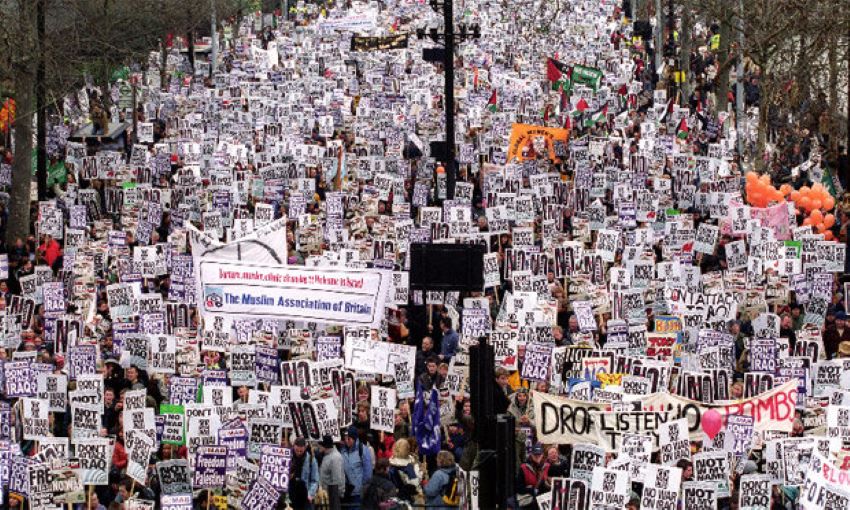
(2021) Music Biography (RLJE) Ewen Bremner, Leo Flanagan, Richard Jobson, Rori Hawthorn, Tess Rowe, Ciaran Lawless, Jack Paterson, Gerry Knotts, James Hicks, Irvine Welsh, Mickey Gooch Jr., Tom Dunlea, Suki Waterhouse, Elysia Welch, Seána Kerslake, Theren Raufman, Michael Socha, Thomas Turgoose, Paul Gallagher, Thomas Grant, Mel Raido, Siobhan Redmond. Directed by Nick Moran
In the late-1980s through mid-1990s, alternative rock was more or less dominated by the United Kingdom. With apologies to Seattle grunge and hip-hop (which was in its formative era back then), American indie music tended to follow trends set in England months and years earlier. It is startling for some American music fans who are interested in the era to discover that several different sub-genres were essentially brought into the limelight by one man and his record label; Scotsman Alan McGee and Creation Records.
As a young boy in Glasgow, McGee (Flanagan) lip-synched and played air guitar to Bowie while his abusive father (Jobson) despaired of his son ever making anything of himself. With the support of his mother (Redmond) and sister (Hawthorn), he managed to survive with ego intact and after seeing the Sex Pistols on TV, determined to move to London and start a punk band. Unfortunately, his timing was bad and he arrived just as the punk era was more or less fading out.
But the now twenty-something McGee (Bremner), while not himself talented as a musician, knew talent when he heard it. He found the Jesus and Mary Chain and became their manager, using the profits from that relationship to pour into a record label that he named Creation, named after a 60s band that he admired. The band was a seat-of-the-pants operation early on but McGee had an uncanny knack of discovering bands and trends – like acid house (Primal Scream), shoegaze (My Bloody Valentine) and indie pop (Teenage Fan Club) before they became huge. But his most notable discovery was Oasis, the band that spearheaded the Britpop craze of the Nineties, and was for a time the biggest band in the world.
But as all rock docs let us know, the success was fueled by excess as McGee became hooked on ecstasy, cocaine and eventually, heroin. After his drug usage got to a point (he famously claims that he doesn’t remember anything about 1993 except signing Oasis) that he had a breakdown, he managed to clean up, but the cost to his personal life was high.
Having been a rock critic during the heyday of Creation, I can testify to the influential status of the label. While they weren’t the only influential label of their time, there really hasn’t been a label like them before or since. Moran’s somewhat fictionalized account of McGee’s life captures the era well, using montages, archival footage and New Music Express headlines. For someone who was in tune with what was going on across the pond, it brought up a lot of memories.
For those who were less in the loop, it might all be a bit confusing – the introduction of since-disgraced British DJ Jimmy Saville late in the movie might not resonate with those who aren’t aware of the reasons McGee despised him so deeply, for example. Bremner plays McGee in a somewhat over-the-top manner which ordinarily might be off-putting, yet is perfect for the task at hand. McGee was (and is) larger than life and it is a tough assignment to get his personality just right and in many ways Bremner’s portrayal doesn’t do McGee justice, but to be fair, nobody could.
Moran’s directorial style seems heavily influenced by Danny Boyle in his Trainspotting days (Boyle is a producer here, not coincidentally) and yes, the hyperactive style that Boyle made famous back then works wonderfully here. There’s a lot of cheeky humor here, some of it of the meme-worthy variety, that seems in tandem with McGee’s personality. It may grate at times, but I found it amusing anyway.
If there is a problem here, it’s just that it feels so much like every other rock biography out there, with enough reverence to be nearly hagiographic, but enough irreverence to make it rock and roll. Moran also uses the hoary old conceit of telling most of the story as a flashback, using an interview that McGee does with a fictional but comely interviewer (Waterhouse) in Los Angeles as a springboard for his anecdotes.
McGee is not as well-known over here in the States as he should be, but thankfully, the music he helped bring to the world speaks for itself and there is plenty of it on the soundtrack. Even so, the movie is definitely all about McGee and his personality which permeates the film. This is isn’t a movie whose innovation will match the music that it chronicles, but it is serviceable enough a story and the music is good enough to carry the movie through.
REASONS TO SEE: A cheeky sense of humor. A great soundtrack.
REASONS TO AVOID: Seems a bit too much like most rock biographies.
FAMILY VALUES: There is a shit ton of profanity, drug use, some violence and sexuality.
TRIVIAL PURSUIT: The film made it’s world premiere at the 2021 Glasgow Film Festival, which is also where McGee was from and where much of the early portion of the movie is set.
BEYOND THE THEATERS: Amazon, AMC Plus, AppleTV, Google Play, Microsoft, Redbox, Vudu, YouTube
CRITICAL MASS: As of 3/2/22: Rotten Tomatoes: 64% positive reviews; Metacritic: 53/100.
COMPARISON SHOPPING: Kill Your Friends
FINAL RATING: 7/10
NEXT: Seobok: Project Clone










